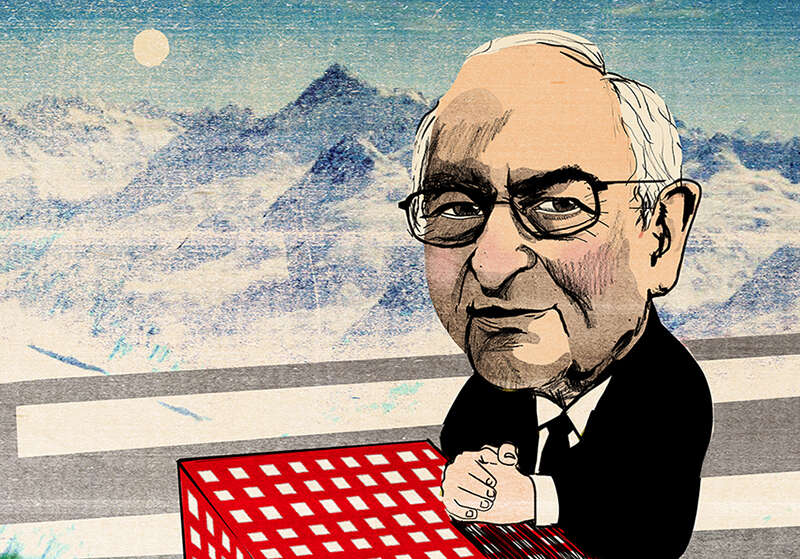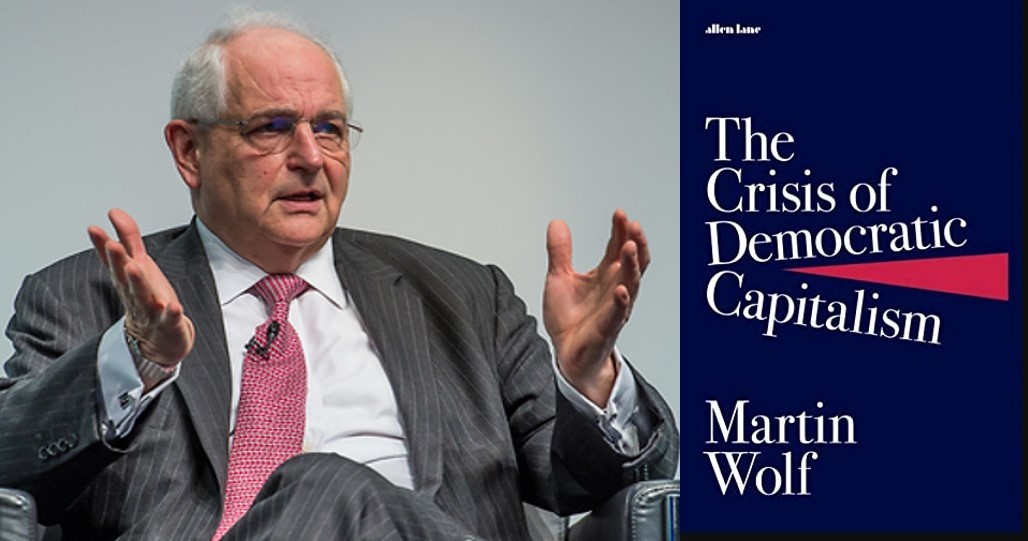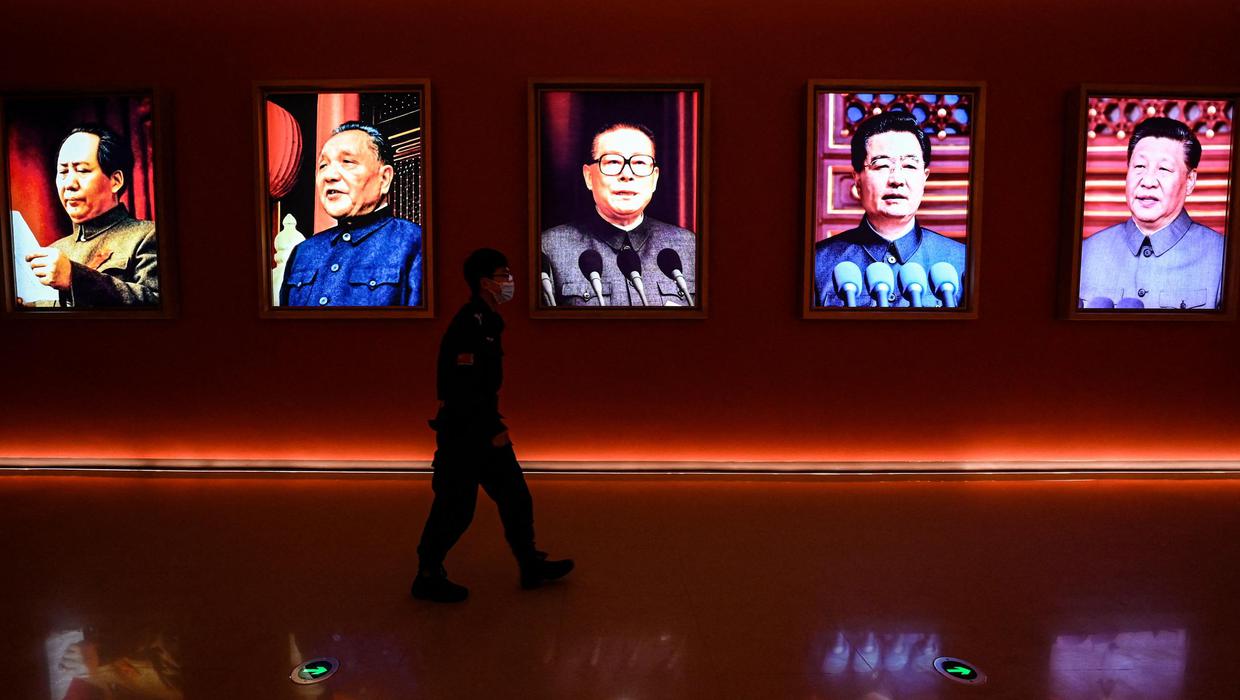Democratic capitalism – what is its future?
Martin Wolf is chief economics commentator at the Financial Times, London. He was awarded the CBE (Commander of the British Empire) in 2000 “for services to financial journalism”. Previously a senior economist with the World Bank, he joined the Financial Times in 1987. This week, I finished reading Martin Wolf’s latest book. It impressed me greatly.
Wolf’s book, The Crisis of Democratic Capitalism, is a well-balanced analysis of the challenges facing democratic capitalism. Rising inequality, political polarisation, and the threat of environmental catastrophe have all led to a crisis. Although particularly acute in the United States, these concerns affect most Western countries.
In this review, I focus on how Wolf assesses China’s role.

What is democratic capitalism?
This post-World War II economic system combines free-market capitalism with democratic political institutions. In democratic capitalism, individuals can be economically active without excessive government intervention. The legal system distributes political power democratically through free and fair elections.
In describing his book in the Financial Times, Wolf movingly starts with his family’s escape from Nazi oppression.
It has made me aware throughout my life that political mistakes can combine with economic disasters to unleash destruction upon societies believed civilised… The defence of liberal democracy was the political backdrop to my formative years. Subsequently, especially as an economist at the World Bank, I learnt to understand the role of market capitalism in generating the prosperity on which stable government depends. I welcomed the opening of the global economy and the huge contribution made by global capitalism to the reduction in mass poverty, notably in China.
The snags
However, despite its merits, democratic capitalism creates inequality, Wolf asserts. The market rewards certain skills and talents more than others, leading to only a few people becoming wealthy. The wealthy have more influence than the average citizen over politics. This erodes the democratic nature of the system.
Wolf argues that the rise of China is one of the most important risks for democratic capitalism. China's economic model, which combines authoritarianism with capitalism, threatens liberal democratic values. China's economic success has emboldened authoritarian regimes around the world. They see China as a model for economic growth without political liberalisation.

China’s rise demonstrates that there are other successful models of economic development apart from democratic capitalism. China’s success arises from a combination of state-led development, export-led growth, and a strong manufacturing base. This raises questions about the long-term viability of democratic capitalism and the limitations of the Western model.
Wolf believes that China’s success in achieving rapid economic growth and lifting millions out of poverty, has created legitimacy for its system. In contrast, democratic capitalism faces growing disillusion in the West.
Implications
Both democratic capitalism and China's state-controlled capitalism depend on governments doing their job properly. In both systems, it is important for the government to be transparent, accountable, and responsive to the needs of its citizens. For example, China's economic success has also led to rising expectations among Chinese people, who are starting to demand more political freedom and greater accountability from their government.
Finally, Wolf reflects on the broader implications of the crisis in democratic capitalism. He sees a need to build a more sustainable and equitable global economic order. He lists ten principles he believes governments should adopt to help restore faith in democratic capitalism.

We cannot go back to the 1960’s. Human beings must act collectively as well as individually. Acting together, within a democracy, means acting and thinking as citizens.
He argues that the rise of China, and the emergence of new powers such as India and Brazil, will require a fundamental rethink of the global economic and political order. This requires a new level of international cooperation and coordination.
The West needs to reform its economic and political systems. For example, the global financial crisis exposed the weaknesses of the Western financial system, which now requires fundamental reforms. The West needs to address the issues of rising inequality, environmental degradation, and social dislocation. These have eroded the legitimacy of democratic institutions.
Thus, the key challenge facing democratic capitalism is to adapt to a changing world. The rise of China has altered the world’s balance of power. The West needs to find ways to engage with China constructively, while also standing up for its principles. This requires economic, political, and cultural dialogue with China.
My conclusions
The Crisis in Democratic Capitalism gives a thought-provoking and insightful analysis of the challenges facing democratic capitalism. I find it refreshing that, unlike most Western writers, Wolf admires China’s progress. He believes the Chinese system to be effective. He balances this against his own strong views that democratic capitalism is preferable to the Chinese model. And he accepts that the West must change its thinking and become more adaptable to modern geo-politics.
It seems churlish of me, but I make two comments on this expertly researched and well-balanced book.
First, while Wolf acknowledges it, he does not stress that both the Chinese system and its Western counterpart began recently. Democratic capitalism began after World War II. The Chinese economic model dates back only to 1978, when Deng Xiaoping started ‘opening up’ China. Adjusting both models would take time in any circumstances.
Chinese people take a long view of history. The West, especially the USA, does not. But I am more optimistic than Martin Wolf about the future of the world. The West learned of the compass, printing, and gunpowder from China. China learned of new uses for them from the West. This is happening again in both directions.

Second, I think that Martin Wolf pays too little attention to culture in his book. Confucian philosophy has led Chinese families and society to a disciplined, orderly, top-down, social system. Western democratic systems favour freedom, and even rebellion, and thus they accept some chaos. Chinese people treasure order, Westerners, disorder.
I greatly over-simplify. Yet, part of the dialogue that Wolf proposes must be about values – and what each society regards as important. We can surely accept that different values apply in each society.
In my view, the debate needs to be as much about culture and values as it is about trade, geography, influence, and geo-politics.
Worked on the article:

Wanlikhang





